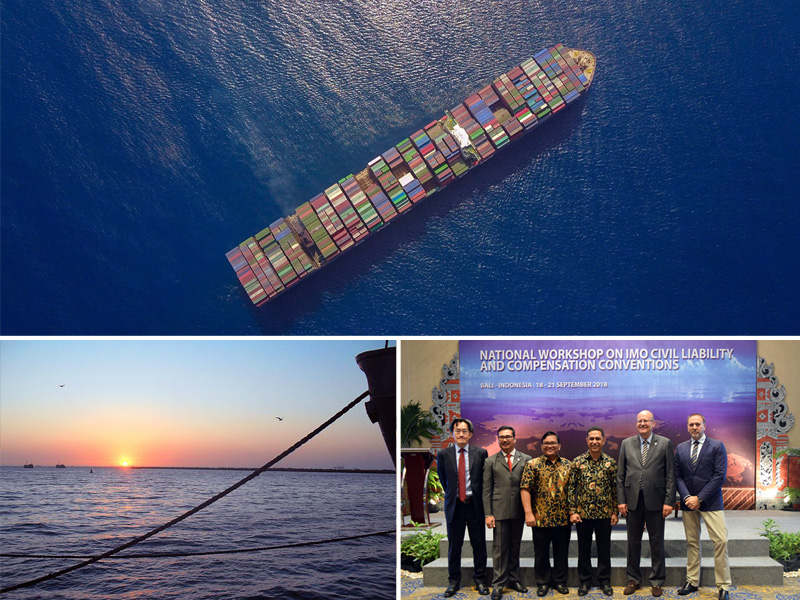IMO’s comprehensive liability and compensation regime covers issues such as pollution incidents, wreck removal, carriage of passengers and luggage – providing vital protection in the event of a maritime incident. Countries need to ratify and implement rules and regulations in order for them to be effective. But how does a country go about implementing these obligations into national legislation?
A four-day workshop in Bali, Indonesia (18-21 September) provided lawyers, policy makers and legislative drafters with a meaningful insight into IMO processes and procedures in developing international rules and examining how to effectively implement IMO conventions into domestic legislation.
The event also included a case study on Indonesia’s experience of drafting national maritime legislation with a focus on civil liability and compensation issues, including the implementing of IMO instruments. To-date, Indonesia has ratified the Bunkers Convention (2001) and Civil Liabilities Conventions (1969 and 1992) and plans to ratify the 1992 Fund Convention, the Nairobi Wreck Removal Convention, the Salvage Convention (1989) and the Transport of Hazardous and Noxious Substances (HNS) Convention.
The event was run by IMO’s Jan De Boer in collaboration with members of the IOPC Funds Secretariat and of the International Group of P&I Clubs. It was organized by IMO and the Coordinating Ministry of Maritime Affairs of Indonesia.
